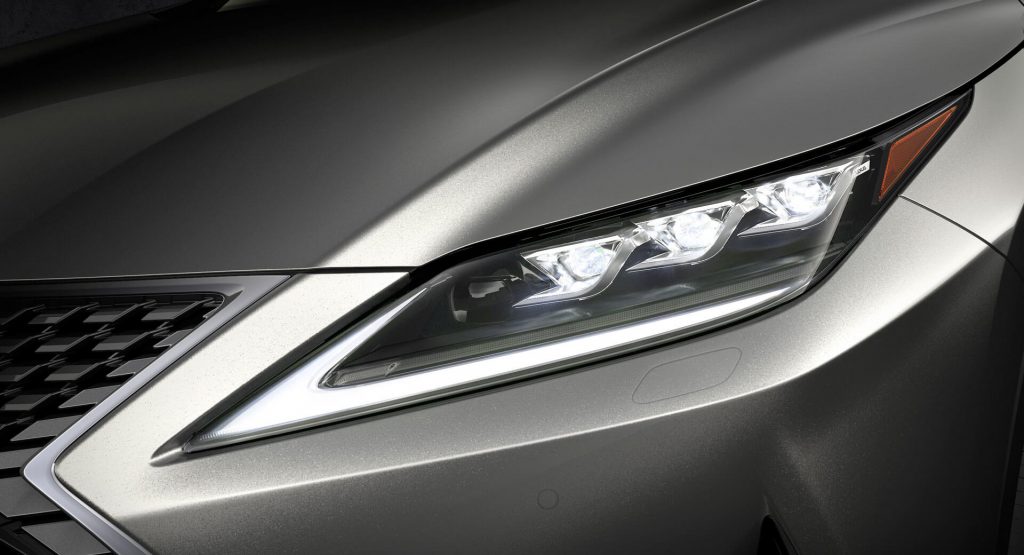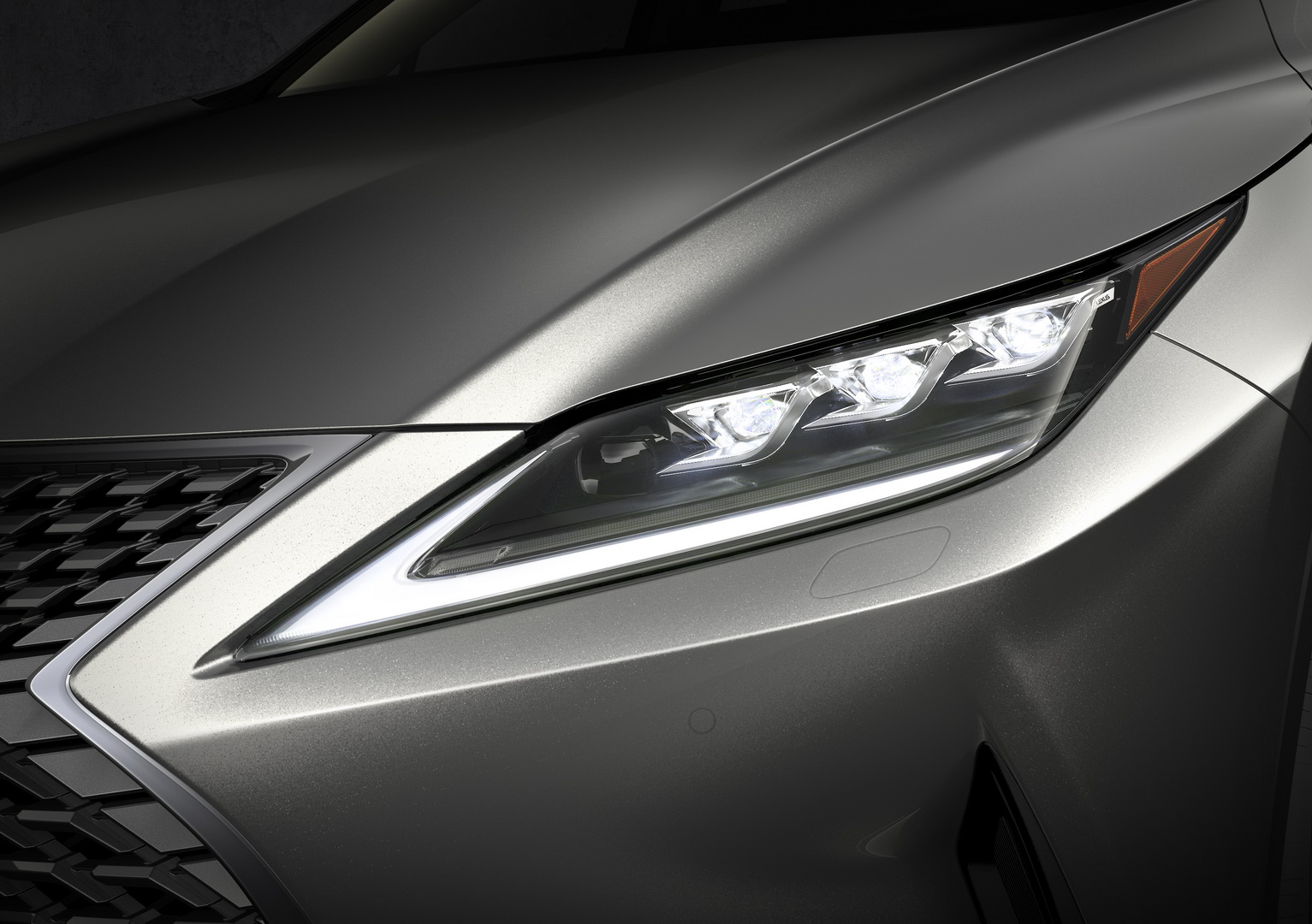Lexus is taking the illumination of the road ahead to new levels with a state-of-the-art technology that will be introduced later this year in the facelifted RX crossover.
Bound to make driving at night and in poor weather safer, the system is called BladeScan and improves the photometric control of the area in front of the car from 1.7 to 0.7 degrees. What this means is that drivers will be able to see areas otherwise difficult to check out with a conventional high-beam system, like road margins, pedestrians and possible obstacles.
The road signs will also be illuminated earlier.
Also Watch: Don’t Speak; Just Let Your New Merc’s Headlights Do All The Talking
Compared to the outgoing RX, which features automatic or adaptive high-beam LED lighting that’s part of the Lexus Safety System+ package, pedestrian recognition at night is said to have been improved by 24 meters (79 ft) – now covering 56 meters (184 ft) with the implementation of the new system.
Furthermore, the technology doesn’t dazzle other drivers and keeps the number of LEDs to a minimum: 10 on each side of the vehicle, in this case. The LEDs are found in a compact module in the front corner of each headlight, casting light diagonally across the two blade-shaped mirrors that rotate at high speed. The LEDs automatically switch on and off and the layout retains its triple-eye light arrangement and integrated daytime running lights.
Toyota’s luxury car brand has demonstrated this new adaptive headlight system on video, so you can head on down and click the play button to see how it works in the real world.
Update
Lexus got in touch with us, announcing that the 2020 RX won’t get the BladeScan technology in the United States and Canada.
“For years, Lexus has been a proponent of Adaptive Driving Beam (ADB) technology and its safety benefits”, the spokesperson told us. “Last December, Lexus submitted a petition to NHTSA to allow ADB in the United States. Currently, we await the Agency’s decision and hope to see an amendment in FMVSS 108*.”
*Administrated by the National Highway Traffic Safety Administration (NHTSA), the Federal Motor Vehicle Safety Standard (FMVSS) 108 regulates automotive lighting, reflective devices and associated equipment in the U.S.




